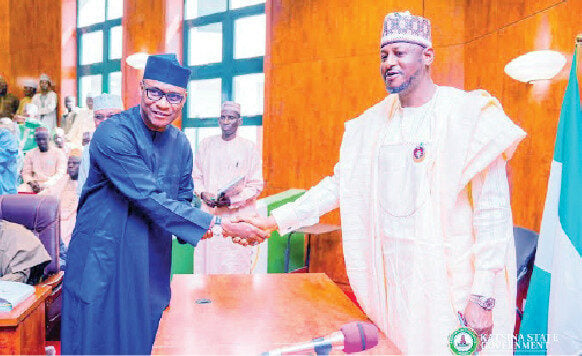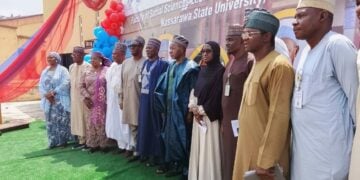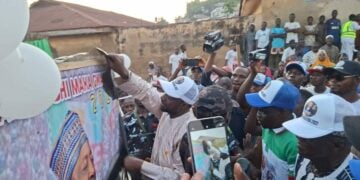As Katsina State moves closer to finalizing its 2026 fiscal plan, the recent concluded pre-budget defense sessions have highlighted a new era of fiscal discipline, citizen inclusion, and accountability in public finance.
Chaired by the Commissioner for Budget and Economic Planning, Hon. Malik Anas, the defense sessions held at the Conference Hall Old Government House in Katsina brought together commissioners, permanent secretaries, directors, and heads of agencies to justify their 2026 budget estimates before the state’s planning committee.
But beyond the ritual of figures and forecasts, this year’s defense reflected a deeper transformation in Katsina’s governance philosophy: budgeting that listens to the people and measures impact, not just expenditure.
A New Era of Fiscal Realism
Since assuming office, Hon. Malik Anas has emphasized transparency, evidence-based planning, and value-for-money as the pillars of Katsina’s fiscal management. His leadership during the defense underscored this commitment as he urged ministries to ensure that “every naira proposed must reflect value for the people.”
The Budget Committee examined submissions for credibility, performance, and alignment with Governor Dikko Umaru Radda’s “Building Your Future” development agenda. Ministries were challenged to justify not just how much they needed, but how much impact they had delivered.
Anas stressed that the state would no longer entertain “wishful budgeting” based on unrealistic revenue projections. Only projects with sustainable funding sources and measurable outcomes, he said, would make it into the final budget document.
Citizen Participation Takes Center Stage
A major highlight of this year’s defense was the integration of community-driven budgeting, championed by the Community Development Programme (CDP) under the coordination of Dr. Kamalaudeen.
Speaking during the session, Dr. Kamalaudeen said the CDP represents a bottom-up reform model that allows citizens to determine development priorities, identify beneficiaries of social interventions, and directly influence government planning.
“This initiative takes governance closer to the people. It’s the citizens who now decide what the government should implement,” he said.
According to him, Katsina State is the first in Nigeria to fully institutionalize such a participatory budgeting model. The programme operates through 361 community secretariats supported by over 1,600 trained local government staff deployed to facilitate needs assessments, town hall meetings, and feedback collection.
Dr. Kamalaudeen explained that community inputs are processed through a three-tier committee structure, the Community-Level Committees, Joint Planning Committee, and Steering Committee chaired by Governor Radda, ensuring that local voices feed directly into the state’s budget.
He said smaller community projects are funded locally through grants, while major infrastructure or social programmes are integrated into the state or federal budget framework.
Inclusivity and Local Leadership
The CDP, he noted, deliberately includes traditional leaders, women, and youth representatives in its structure to strengthen local ownership and promote inclusivity.
“We are ensuring that respected individuals not just elected officials play leadership roles. This builds trust and gives everyone a sense of ownership,” Dr. Kamalaudeen added.
He also emphasized that the programme is non-political, describing it as a government-for-the-people initiative aimed solely at community empowerment and social inclusion.
To enhance transparency and awareness, the CDP has partnered with media houses, social media influencers, and civil society organizations to disseminate information and monitor progress.
“Publicity is key, the media helps us reach people across all 34 local governments, ensuring they understand that this programme belongs to them”,he said.
Dr Kamalaudeen expressed optimism that, with continued collaboration between citizens and the state government, visible improvements in service delivery and local development will soon emerge across Katsina’s communities.
Challenges and Next Steps
Despite significant strides, the defense also exposed persistent challenges in data reliability, inter-agency coordination, and revenue generation. Some MDAs still struggle with performance-based budgeting, while gaps remain in project monitoring and evaluation systems.
Hon. Anas cautioned that for Katsina to sustain its reform gains, it must broaden its tax base, block leakages, and diversify funding sources, particularly through innovation and investment in productive sectors.
Redefining Budget Culture in Katsina
Observers noted that the pre-budget defense session signaled a paradigm shift from bureaucratic formality to results-driven governance. The combined efforts of Hon. Malik Anas and Dr. Kamalaudeen demonstrated a clear alignment between state-level fiscal reforms and grassroots participation mechanisms.
In many ways, the 2026 pre-budget defense mirrors Governor Radda’s broader vision for governance discipline, inclusion, and accountability.
As the state moves toward finalizing its budget, one message stands out: in Katsina, budgeting is no longer about numbers, it is about people, performance, and progress.





